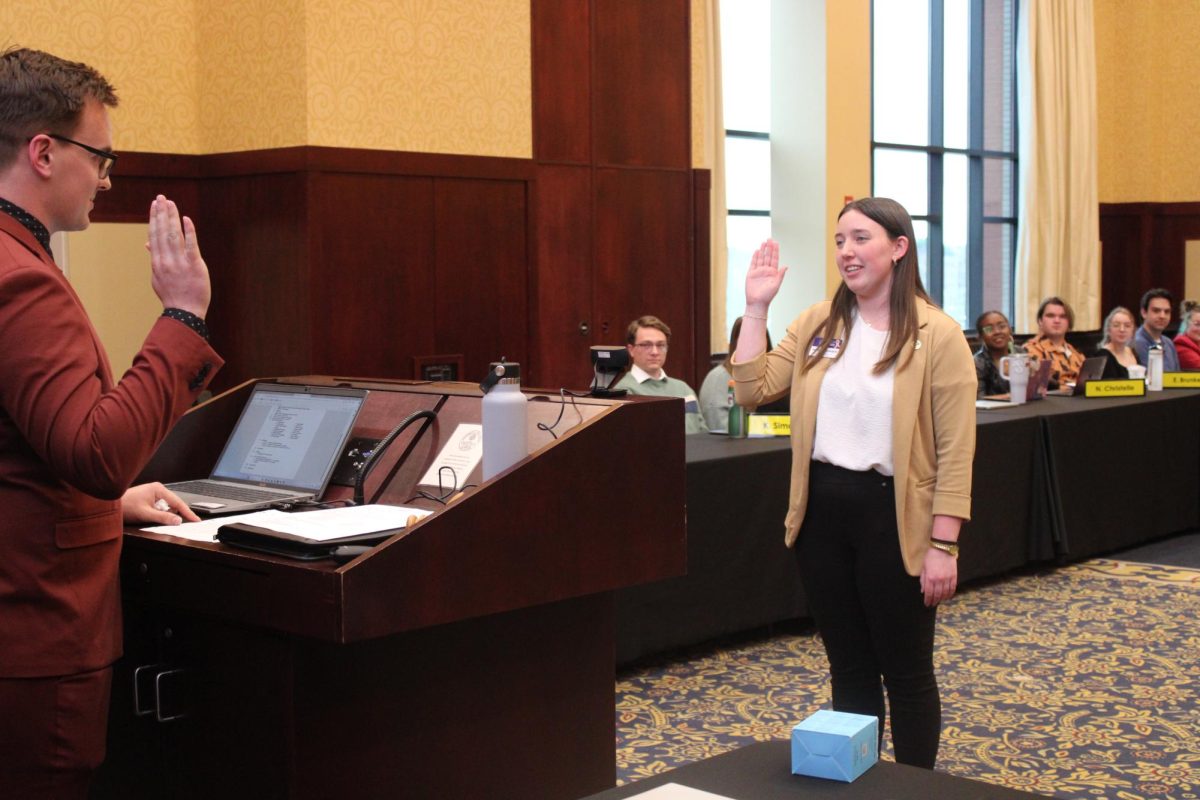If you are driving and get pulled over late at night, you may be administered various tests to prove whether or not you have been drinking.
If you think back to the days when you were younger, you will probably remember singing the songs which helped teach you the daily walk of life.
If you don’t see a connection with the above, you’d have trouble realizing that each requires singing the alphabet.
The melody of that song, along with the sounds of many others, is the premise behind the cognitive phase of UW-Eau Claire’s music therapy program. Music therapy is the scientific application of the art of music to accomplish treatment aims.
According to Lee Anna Rasar, department clinical coordinator, music therapy emotionally stimulates the brain and allows patients to correspond their needs and wants to certain musical beats and pitches.
“People in nursing homes who have had strokes, may not be able to speak,” Rasar said, “so we take the hand opposite to the damaged side of the brain, and we pat out the rhythm of the familiar phrase, like ‘I am hungry.’ They’re hearing it, but they are also feeling it.”
Various instruments are used, mainly based on culture or interest, and people respond differently to different sounds.
“Some people really like bagpipes, and some people really hate bagpipes. Some people might like a flute or violin,” Rasar said.
Music therapy is also used to treat patients with emotional impairments. Fifth-year senior Erin Paschke works primarily with autistic patients, and believes it is much easier for people with autism to be stimulated by sounds.
“Autistic persons are so sensitive to the elements of music,” said Paschke. “It’s all on their level … they can beat a drum, which can be their self-expression. It’s much easier with an unspoken language for them to do that.”
Rasar said that on Sept. 1 there were 47 music therapy majors, not counting those who plan to audition this fall. Paschke, a transfer student, said she believes the music therapy program here is far superior to that of her previous university.
“My former school didn’t really explain how music therapy worked,” she said. “It was kind of like, ‘just play music and you are healed.’ I came here and I learned all about the brain and what the music is doing to your brain.”
There are several ways music therapy students can receive scholarships. Aside from online scholarships, the American Music Therapy Association for Students sponsors scholarships of various amounts based on a student’s treasury balance. They can all be found at musictherapy.org.
Rasar, along with many others, volunteer many hours and take time off to help individuals in later stages of illness.
“We get 100 percent participation from the patients who are there,” she said, “and it’s a win-win situation, because my students are getting the experience … they know the music, they know the population. It’s a great thing to know that we are able to help people in the community, and at the same time, the students get their education.”
Paschke agreed she loves being in the field, able to work with so many people to help brighten their days.
“It’s just so rewarding, so unexplainable, knowing that there are people who love music.”






